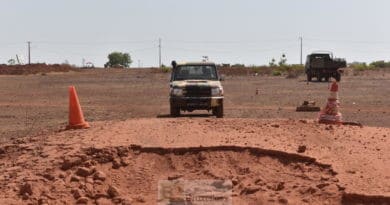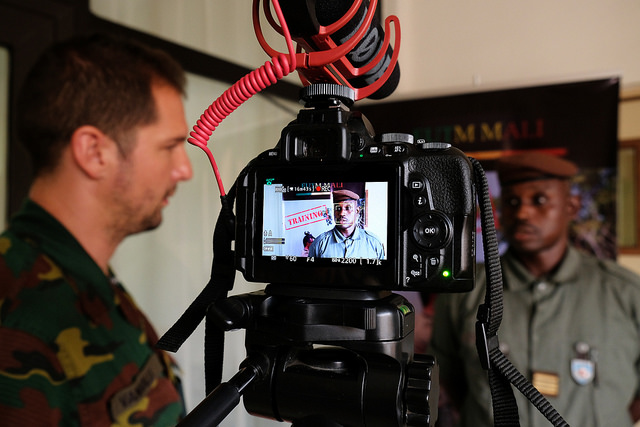The EUPOL mission in Congo: in search of transition
(BRUXELLES2) The European mission to assist the Congolese police (EUPOL RD Congo) should end at the end of September 2014 after a presence of almost ten years in the country (*). For the moment, we do not know how not to make the transfer. And this is one of the main questions that will arise in the coming months. B2 took stock of a mission - which like its military counterpart (EUSEC RD Congo) - remains below the "media radar". But their importance is not negligible.
The question of the relay
Several reasons militate for the maintenance in one way or another for the maintenance of an advisory function of the EU, explains one of the members of the Eupol mission to B2. “The strategic expertise, accumulated since 2005, is important ". Of the forty people who make up the mission, some are veterans, such as the POLAD (political adviser) present since 2005, or the head of mission for 5 years, the deputy head for 3 ½ years, etc. The need still exists for reform in the security forces, as in the Congolese police. But on the other hand, the question is whether we can have a permanent crisis management mission, while other missions are opening up in Africa.
Several tracks
Several avenues are being studied: either entrust this mission to the European Union delegation, if necessary by strengthening it, or by contractualisation, or with a new mission (Congo). Beyond the question of the relay in the Congo, more general questions therefore arise: what role does Europe want to play in Africa in terms of security? What means does she give herself?
The role of member states
The other track would be to see the relay ensured through the Member States. But he is " difficult to see who will take the lead, no State automatically has the (financial) means like the experts available for this ". The mission is already working in synergy with some of the Member States which have bilateral programmes. But each program has its own intrinsic logic and each country has different policies. France acts on the maintenance of order. Sweden and Germany (via GiZ) work on sexual violence. Belgium and the United Kingdom have registered their presence, in particular on the community police. Experts from the Belgian federal police thus come regularly on secondment, as part of the strategy defined by Congolese policy.
Groundwork...
The difficulty of the EUPOL mission is that it works on the merits. Whether it's the " strategic advice "for the reform of the Congolese police or training, " we work on the change of mentality ". And progress can appear very slow. The Directorate General for Schools and Training (DGEF) was set up to reformulate the training system. "It's a 2-year job" which results. It's an important moment ". But the police academy is not yet installed. " The project is in progress ". But there is also the problem of land.
The democratic game slows down reforms
And for any reform, there must be a discussion. " We are in a new democracy. It is a new exercise. People want to discuss everything. " Thus the organic law on the national police (PNC) was " discussed and promulgated by the president. Several other laws — on the organization of national police stations (PNC), the status of police officers, auditing — are under discussion, they have been drafted but are following their democratic course. » The five-year plan was also approved by the government and presented to Parliament and international partners.
(*) The mission was launched in July 2007. But it succeeded a previous mission "EUPOL Kinshasa" started in February 2005.
----
The three angles of the mission
- Support for reforms. " support the Congolese National Police and the Ministry of Interior and Security in the development of police reform concepts and in their implementation, by providing operational advice, an essential pillar of the mission's mandate ».
- Consulting and training. " improve the operational capacity of the Congolese national police through mentoring, monitoring, advice and training activities”.
- Human rights and sexual violence. " support the fight against impunity in matters of human rights and sexual violence and strengthen police-justice interaction”.


Comments closed.